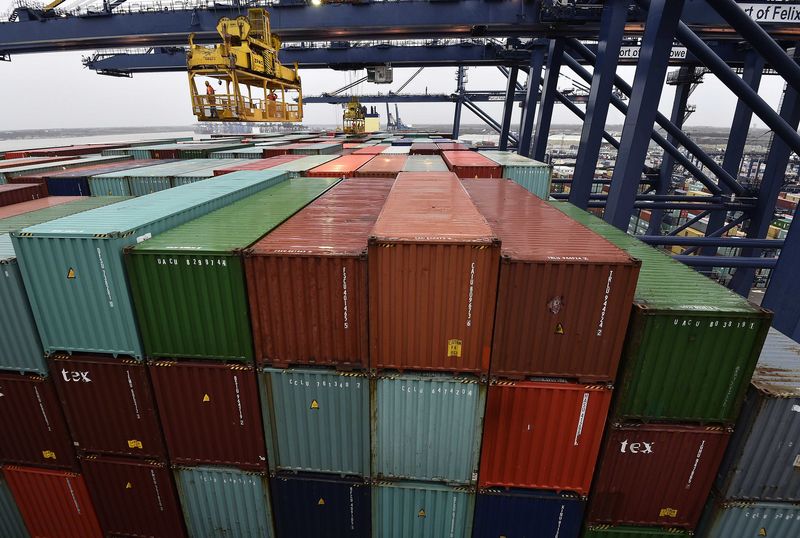By Andy Bruce and William Schomberg
LONDON (Reuters) - Britain's trade in goods deficit widened sharply in December on a surge in oil imports, making the trade gap for last year as a whole the biggest since 2010.
There were signs of a shift in the trade balance in the final quarter, when the goods deficit narrowed by the largest amount in three years as export volumes rose at their fastest since the second quarter of 2013.
But the overall picture remains one of an economy heavily reliant on domestic demand.
The Conservative-led government's hopes of exports playing a greater role in the economy have been frustrated by persistent weakness in the euro zone, Britain's largest export market. That seems unlikely to change before a national election on May 7.
But there are signs that exporters are being helped by the fall in the value of the pound in the second half of last year. Export volumes jumped 2.4 percent in December, the Office for National Statistics said on Friday.
A survey earlier this week showed British manufacturing export order growth hit a five-month high in January.
Paul Hollingsworth, an economist at Capital Economics, said there was an encouraging underlying trend in the export figures although they were unlikely to show a sharp improvement.
"With sterling around 15 percent higher on a trade-weighted basis than its 2009 low, and demand in the euro zone still markedly weak, any further improvement in the trade deficit is likely to be fairly sluggish."
December's deficit was pushed up by a nearly 40 percent leap in oil import volumes, reversing a trend of falling imports.
Berenberg economist Rob Wood said the large rise could reflect a sharp decline in North Sea oil extraction in December shown in recent ONS estimates. Industrial production data for December, due on Tuesday, will shed more light on this.
The ONS said the goods deficit grew to 10.154 billion pounds ($15.6 billion) from 9.283 billion pounds in November. Economists in a Reuters poll had forecast a gap of 9.1 billion pounds.
In the fourth quarter, the trade in goods shrank by 2.2 billion pounds to 29.4 billion, meaning trade is likely to make an improved contribution to gross domestic product in the same period, an ONS official said.
It registered a 0.2 percentage point drag on GDP in the third quarter.

(editing by John Stonestreet)